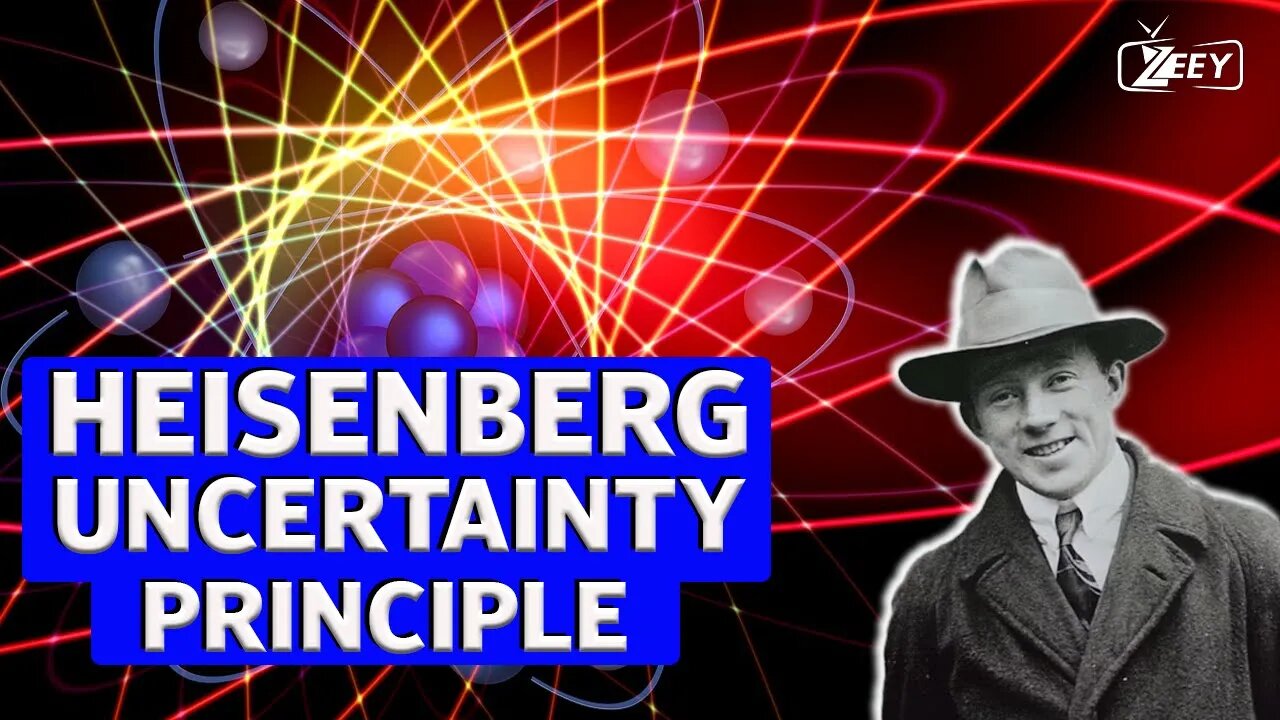Premium Only Content

what is the heisenberg uncertainty principle and why does it matter? | law of inertia
#Physics#Science#QuantumMechanics
The Heisenberg Uncertainty Principle is a fundamental concept in quantum mechanics, formulated by the German physicist Werner Heisenberg in 1927. It states that there is a limit to how precisely one can simultaneously know certain pairs of properties of a particle, such as its position and momentum. In other words, the more accurately you know one of these properties, the less accurately you can know the other.
Mathematically, the Heisenberg Uncertainty Principle can be expressed as follows, for a particle with mass m:
Δx * Δp ≥ ħ/2
Where:
Δx represents the uncertainty in position.
Δp represents the uncertainty in momentum.
ħ (pronounced "h-bar") is the reduced Planck constant, which is a very small constant in the realm of quantum mechanics.
This principle has profound implications for our understanding of the behavior of subatomic particles. It essentially means that at the quantum level, particles do not have well-defined positions and momenta simultaneously. The more precisely we try to measure one of these properties, the more uncertain the other becomes.
The Heisenberg Uncertainty Principle is not a limitation of measurement technology but rather a fundamental property of the quantum world. It has profound implications for the behavior of particles and is one of the key principles that distinguish classical physics from quantum physics. It underscores the probabilistic and inherently uncertain nature of quantum systems.
#Einstein#Space#Astronomy#STEM#Educational#Knowledge#Discoveries#HeisenbergUncertaintyPrinciple#QuantumPhysics#QuantumMechanics#PhysicsExplained#ScienceEducation#UncertaintyPrinciple#QuantumTheory#PhysicsConcepts#WaveParticleDuality#SubatomicParticles
-
 1:34:30
1:34:30
The Criminal Connection Podcast
5 days ago $1.93 earnedEL PACO: Gypsy Family Wars, Bare Knuckle Boxing, Assassinations and Spirits!
37.3K3 -
 51:43
51:43
Brewzle
1 day agoI Found Some AWESOME Stores Bourbon Hunting in Des Moines, IA
35.2K2 -
 1:16:54
1:16:54
Kyle Rittenhouse Presents: Tactically Inappropriate
1 day ago $2.52 earnedReplacing Matt Gaetz Pt. 2
20.3K12 -
 16:08
16:08
inspirePlay
1 day ago $0.70 earnedCan You Sniff Out the Golf Imposters Before They Wreck the Score?
16.9K3 -
 22:57
22:57
RTT: Guns & Gear
21 hours ago $4.52 earnedPSA Dagger vs. Bear Creek Arsenal BC-102 | The Better Pistol For The Poors
42.7K10 -
 8:28
8:28
MichaelBisping
8 hours agoBISPING: "Islam WILL RETIRE after UFC 311!?" | Makhachev Wants Belal or Shavkat at WELTERWEIGHT
24.8K4 -
 1:13:55
1:13:55
Eye of the STORM
4 months agoEye of the STORM Podcast S2 E3 08/19/24 with Sam Anthony
18.3K1 -
 1:04:22
1:04:22
PMG
5 hours ago $0.42 earned"Your Marriage Can Be Saved with Art Thomas"
14.6K2 -
 59:14
59:14
Tactical Advisor
8 hours agoNew Gun Build / Fires update | Vault Room Live Stream 013
45.2K8 -
 7:47:46
7:47:46
Vigilant News Network
21 hours agoMeta Staff MELT DOWN as Zuckerberg BETRAYS Wokeness | The Daily Dose
76.7K73